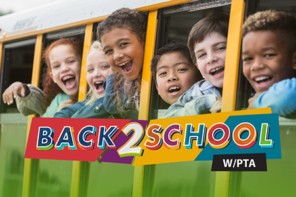So, you want to be the parent of a musician. Perhaps you dream of raising the next Mozart, Audra McDonald or Yo-Yo Ma. Maybe you’re just thrilled about your child’s growing musical talents and aren’t sure about the next step. No need to worry, the following tips are the perfect head start toward harnessing your child’s musical interests to develop a lifelong love of music.
1. Be a great role model.
Arguably one of the best things you can do to harness your child’s musical interests is to make music with them. You don’t need to be an opera singer to create lasting musical memories. Rather, show them the importance of music in daily life by singing along with them to their favorite song or mindfully listening to an orchestral piece from your child’s favorite movie.
2. Learn a new instrument.
Now is the time to learn the instrument you always wanted to learn, but never did. It’s your chance to model both the joy and hard work that comes with learning a new instrument. Not only will your child benefit from seeing music-making in action, but they’ll see that there’s no age limit to enjoying music-making. It’s a lifelong process!
3. Attend musical performances together.
You don’t need to shell out tons of money to see high-quality music programs. Seek out local music events in your area by scanning the newspaper or the event calendar in your local library. You may be surprised by the number of free, family-friendly concerts that are available. Many cities offer outdoor band and orchestra concerts during warmer weather. For the price of gas and a picnic basket, you could drive to a neighboring city and watch a local orchestra play music under the stars!
4. Show interest in your child’s musical pursuits.
Ask questions about their favorite singer or band. Ask them to teach you a new rhythm they’ve learned. If you’re able to afford it, ask them if they’d like to try private music lessons. Asking questions gives your children the opportunity to connect with you, and in turn shows them the value you place on music in everyday life.
5. Praise them for their hard work.
Praise your children for their daily practicing as much (if not more) than you praise them for performances. Learning an instrument, whether it be the voice or violin, takes years of practice and dedication—not an easy task in today’s culture of immediate gratification. It’s imperative that parents emphasize the process as much as the product, even if that means listening to sour notes drifting up from the basement-turned-music studio. Seeing how much you value their hard work, your budding young music student will be more encouraged to stay committed to their art.
6. Focus on the long-term.
Inevitably, the music lessons your child begged you for just a few months ago will lose their newness, and your child may be tempted to give up. Don’t let them. Admittedly, there are circumstances in which a child may truly need to quit. However, chances are that they just need a little extra push. Either way, consider the long-term consequences of their choice. Persistence is one of many core values that can be taught through music. In the words of the infamous Zoltán Kodály, “Let us take our children seriously! Everything else follows from this… only the best is good enough for a child.”
7. Join the Music Boosters.
Music Boosters, a dedicated group of parent volunteers, are a tremendous asset to high school music programs. Often times, boosters provide the funding necessary to continue programs when state or local funding falls short. Music Boosters also provide the school with much needed music education advocacy. The passionate volunteers who make up the Music Boosters can be vocal and powerful proponents of music education for all children. Being such a parent will show your child just how much you value music education in schools.
8. Don’t wait for high school to get involved.
Elementary music teachers are often responsible for showcasing their students’ musical progress through programs and other school-wide performances. This often means coordinating rehearsals with hundreds of students, setting the stage with props and backdrops, making sure technical equipment is in working order and setting up the risers. The duties are endless. Volunteering to help with something as simple as folding program flyers can make a world of difference, and will show your child that the hard work behind-the-scenes is just as important as being center-stage.
Jennifer Hibbard is teacher-author and blogger at yellowbrickroadblog.com, where she designs and produces music education resources with an emphasis on music literacy.





